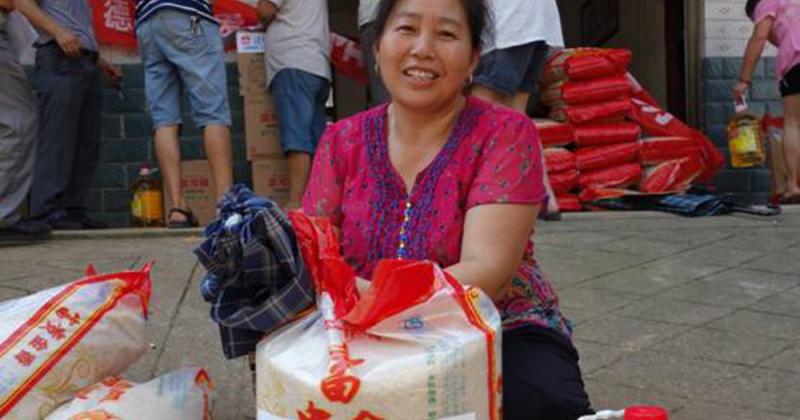The Holy See sends a contribution to the initiatives of Jinde Charities, the network of charitable works connected to the Catholic Church in China. A sign that the communion between Chinese Catholics, the bishop of Rome and the universal Church is already being lived at its most concrete and gratuitous level of shared charity.
Pope Francis joined the Catholic Church in China to help the poor in the most disadvantaged areas of China. And he did so by sending a contribution, not a symbolic one, to support charity initiatives promoted in the People’s Republic of China by Jinde Charities, the network of charitable works connected to the local Catholic Church.
It happened before Christmas, when the Vatican Department for the service of integral human development allocated - with the Pope’s placet - $ 100,000 to finance projects and initiatives in favor of the populations of economically depressed mountain areas that surround the megalopolises in the provinces of Hebei and Guizhou. The national Catholic weekly newspaper Faith, headed by the priest John Baptist Zhang Shijiang, reports the news.
The populations of the mountainous areas, which are economically depressed, had been at the center of Jinde Charities initiatives in 2017. An effort that has also received approval from the civil institutions. Throughout the past year, the activities of Jinde Charities have also triggered similar initiatives, which sprout by imitation in dioceses and Catholic communities throughout China. On June 3, 2017, a fundraising concert organized by Jinde Charities was hosted in Beijing, at the Cathedral, to which attended representatives of Chinese political bodies, such as the United Front and the State Administration of Religious Affairs (SARA).
The new contribution made by the Pope and the Holy See to Jinde Charities shows that in Chinese Catholicism, communion with the Bishop of Rome and the universal Church is experienced at the most concrete and gratuitous level of shared charity. The Successor of Peter embraces and confirms in faith his brothers and sisters, while he embraces the concern for those in need that Chinese Catholic communities have manifested with the countless works of charity spread throughout this immense nation. A dynamic charity able to overcome the political and geopolitical walls: in these days, Jinde Charities together with the Taiwanese Catholic diocese of Hualien, is raising funds and resources for the populations of Taiwan in the area most affected by the recent earthquake.
Chinese Catholics’ aid to those in need also responds -in its own way- to the insistent calls of the Chinese leadership and President Xi Jinping to alleviate the poverty that still weighs on a part of the Chinese population. In China, in the years 1990-2005, about 470 million people have come out of extreme poverty, and now the government is focusing its policies on remote mountain areas to raise the living standards of the remaining 70 million people in poverty. But the impressive network of charitable works - orphanages, care institutions for the disabled, mentally ill, elderly and non-self-sufficient people, nurseries, dispensaries for the poor – that exists within the Catholic communities in popular China, is a phenomenon completely overlooked by the mainstream and social media currently busy in a 24/7 campaign to try to sabotage a possible agreement between the Holy See and the Chinese government on the issue of episcopal appointments. And yet, in the current historical condition of Catholicism in China, these realities can become real spaces of proclamation and witness to the Gospel.
In a China overturned by impressive processes of social transformation, works of corporal and spiritual mercy represent a privileged way to attest Christian liberation in the Chinese social and political context.
And the Pope, together with his collaborators, by offering their explicit and cordial support for the charity initiatives implemented by the Church in China, shows an apostolic foresight that is unknown to the clerical-political lobbies who fear the sole hypothesis of seeing the walls between the Holy See and the People’s Republic of China fall.
